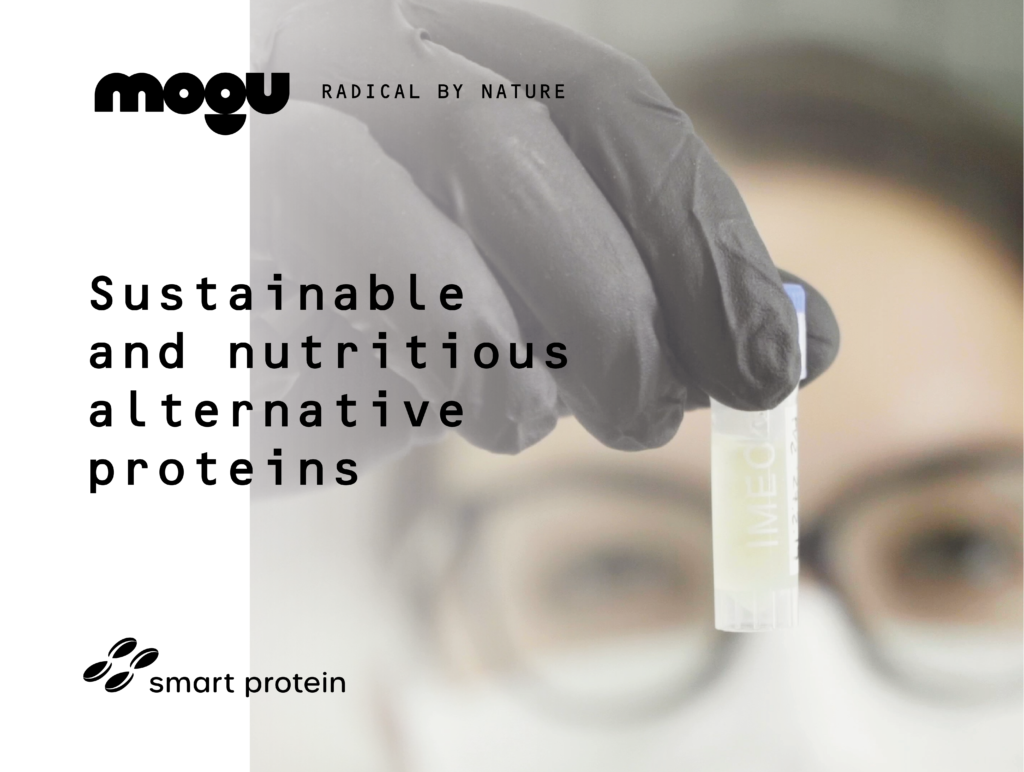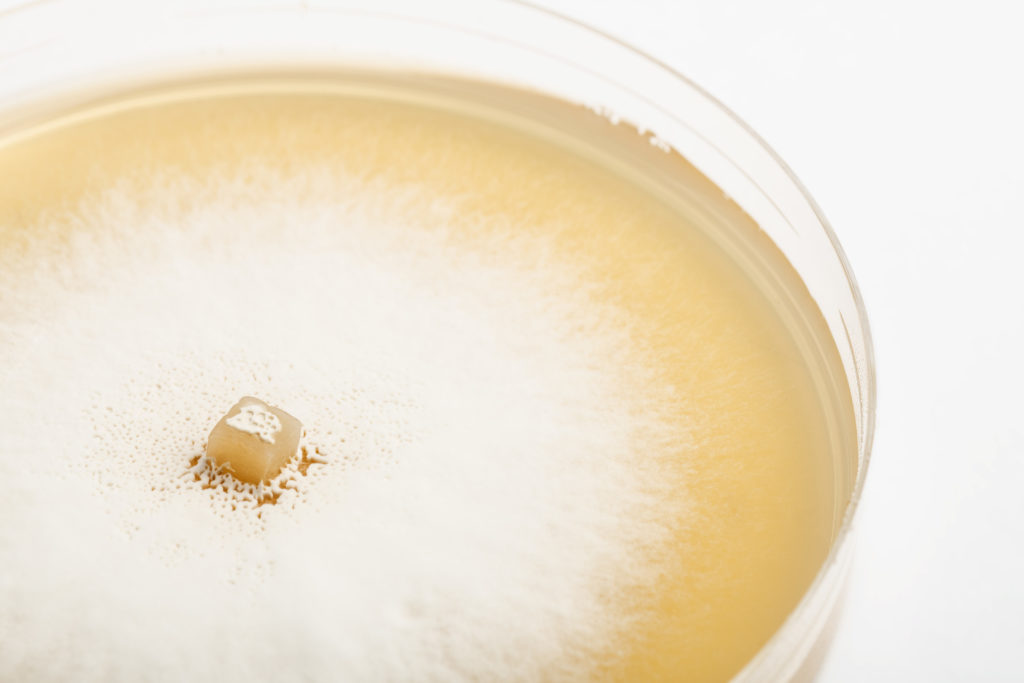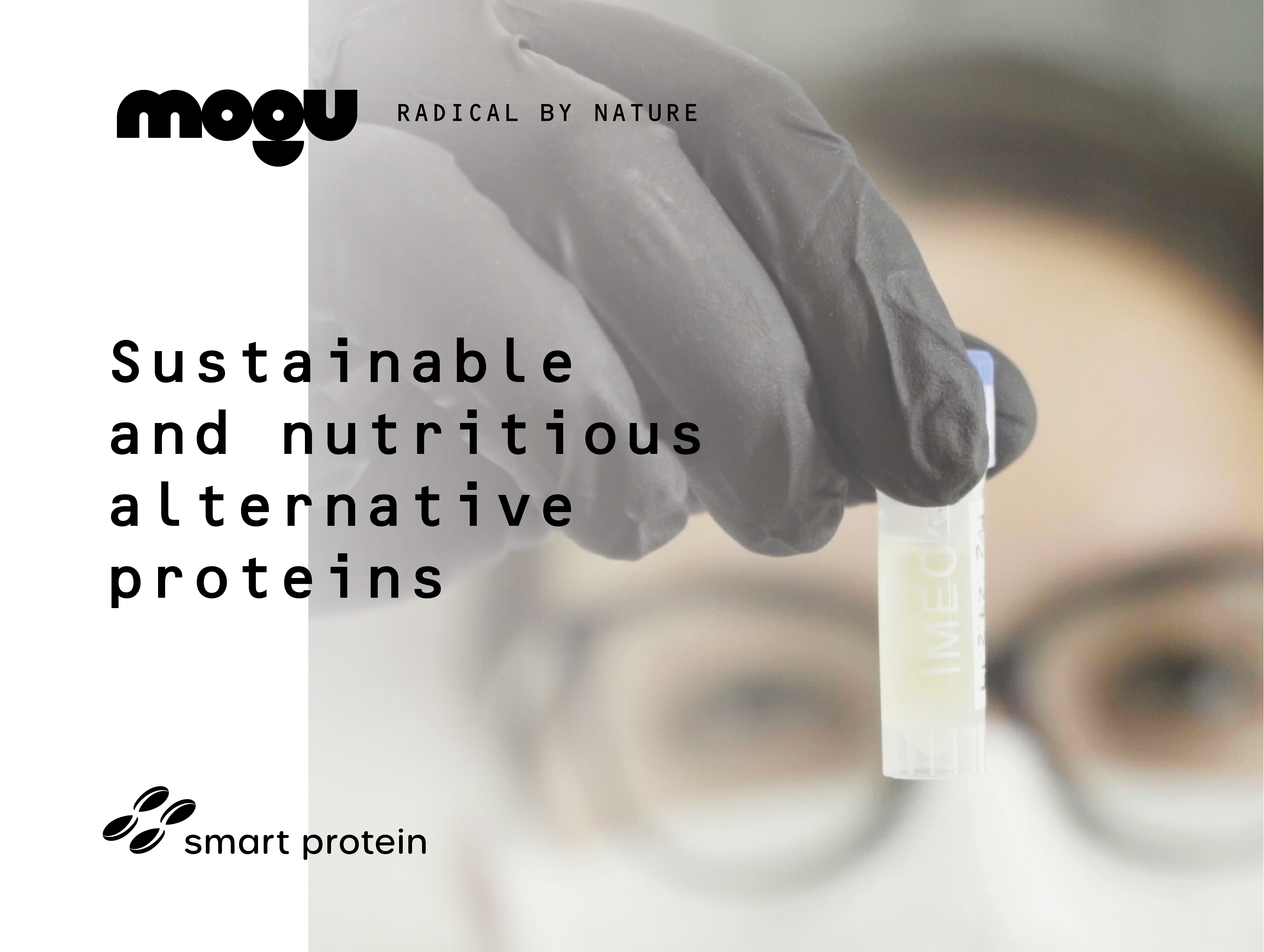
Mogu is part of the groundbreaking project “Smart Protein” funded by the European Commission: a partnership between more than 30 external partners, including universities, research institutions, corporations, SMEs, and NGOs, that seeks to develop the next generation of smart protein foods which are cost effective, resource efficient, and nutritious. A range of highly innovative new-protein foods made from plants, fungi, byproducts, and residues.
A primary aim of the project is to help build a future-proof protein supply by creating sustainable and nutritious alternative proteins. This is in direct response to some of the most urgent challenges faced by the planet, including climate change and global food security.
Mogu since its foundation focuses on the use of mycelium-based technologies to develop a family of sustainable bio-composite materials and food products, following the principles of the Circular Economy. Mogu since its foundation focuses on the use of mycelium-based technologies to develop a family of sustainable bio-composite materials and food products, following the principles of the Circular Economy.

Within the project Mogu will be involved as a developer and producer of fungal foods by using solid fermentation processes.
By taking part to Smart Protein project, Mogu will design, establish and run a dedicated facility for the production of fungal food products under Italian and EU standards, in order to deliver high-quality edible composite cakes made out of a combination of mycelium, grains, legumes and suitable agro or food industry byproducts.
We will assign the experimentation, production and testing activities to our highly specialized team with a strong biotechnological and mycological background.
Microbial biomass proteins will be created from edible fungi by up-cycling side streams from pasta (pasta residues), bread (bread crusts), and beer (spent yeast and malting rootlets).
New products will also be developed from plants, including fava beans, lentils, chickpeas, and quinoa – with a focus on improving their structure, taste, and flavour. Investigations into cost-effective protein extraction, protein chemistry, polymeric structure, physicochemical behaviour, and protein-protein interaction will be carried out in order to maximise the functionality of these proteins and customise their usage in food and drinks.
To find out more about the project, visit the website: https://smartproteinproject.eu/about/
The Smart Protein project has received funding from the European Union’s Horizon 2020 innovation programme under grant agreement number 862957.
#SmartProtein PARTNERS
University College Cork
AB InBev
Agresearch Limited
ARCA SRL
Barilla G. E R. Fratelli Spa
Beotanics
Chr. Hansen
COPOSA
Danone Nutricia Research
Delphy
Dohler Gmbh
Equinom
EurA AG
Fraunhofer
Ghent University
Glanbia
HTTPS://WWW.GLANBIAIRELAND.COM/
HES-SO Valais/Wallis
INTIA
Mogu Srl
Müller’s Mühle
Novozymes
ProVeg International
QUINOA MARCHE SRLS
Siccadania
Soguima Comércio Indústria Alimentar
Teagasc
Thai Union Group
The Good Food Institute
The University of Udine (UNIUD)
UCC Academy
UNIBZ
University of Copenhagen
Woerle


